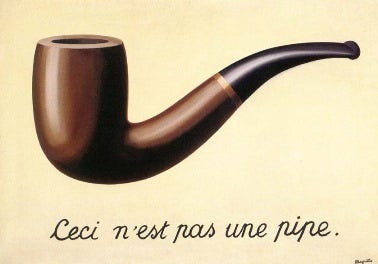Hello Friends,
Welcome to another weekly installment of absurdity. I promise no cat pictures.
The Price of a Nail
If you are of a certain age, you remember your local hardware store. Before Amazon sold hardware. Before Home Depot and Lowes. In most towns or city neighborhoods, you had a local hardware store. It was not an Ace, either. It had the name of the family who started it. If you don't remember this time, just go with it.
In these local hardware stores, the proprietors set the price of nails. That was what a nail cost in your town. In essence, that was the value of a nail in your entire world.
If you decided you didn't want to pay that price for a nail, you could drive to another town and go to that hardware store. But it wasn't your local store. If the two towns were sufficiently separated, that store's prices did not affect your local hardware store's prices, at least as long as people kept going to your local hardware store and didn't complain about the prices.
The important part of this is that no outside factors affected the price of nails at your local hardware store. That was the real price of a nail and it was yours. You could depend on it. You could pick up that nail, hold it in your hand, know what it cost.
This is locality.
National Stores
Then large national stores started popping up and gave you options for nails. These stores were close enough to compete with your local hardware store, but their prices were set nationally (I know there are regional issues here, but go with me, it's a metaphor).
When these stores, Home Depot and Lowe's started selling nails, your local store took notice. Now, suddenly, your local hardware store had to alter its price of nails to compete. The real price of a nail changed. And it was no longer local. You could no longer be confident in the value or worth of a nail. Its price was not a reflection of the simple cost of making a nail. It was affected by forces outside of your locality—the prices that national stores set for nails.
This is non-locality.
And it appears that our universe is non-local, too. In other words, your reality is not just and only constructed of the stuff you experience in your immediate area. If you were to try to define your reality, you couldn't. Your reality is more than what you can see, smell, hear, and touch. There are other things that define your universe. Things that you could know nothing about.
So What?
Truthfully, on the level of a nail, it doesn't seem like such a big deal: you go to the store, any store, pick up a box of nails, pay the store, go home, and pound nails. You and I are not really concerned with much more than that. For us, that is our reality—we built a birdhouse, and now, we can sit on a chair and watch the birds. Who cares about the entire global supply chain of fasteners when all we want to do is to enjoy a moment of peaceful contemplation in our backyard against the chirps of wild birds?
You may start to care when you notice that there are fewer birds than there used to be. Or when it is so hot outside that you can't spend the time outdoors. Or when the cafe that you rely on for your ice coffee is closed, because, post-pandemic, employees are hard to find.
You may notice that non-local factors are affecting your reality.
Sometimes a cigar is not just not there
There have been many quantum physics experiments that have looked into this notion of locality. And, a Nobel Prize was given in 2022 for work in this area. In a recent article in New Scientist (sorry, it's behind a pay wall), another experiment reinforced the conclusion that our universe is non-local. Non-locality is an implication of quantum entanglement and of the Heisenberg Uncertainty Principle, the foundations of modern quantum thought.
Again, who cares, except in the quantum realm, that if you follow quantum non-locality to its conclusion, then reality—space and time—is basically an illusion. What we see, hear, touch is more than what we see, hear, and touch. Furthermore, because it is, it's inherently unknowable, just like we don’t really know all the factors in a 10 penny nail costing 11 cents.
There is a Zen Buddhist thought that the past is an illusion. Apparently, the present is, too. It seems we can't help thinking globally when we act locally (or, vise versa)? As if?
As I write this, someone in my neighborhood is pounding nails into a new roof. Or are they?
Happy reading and happy writing.






